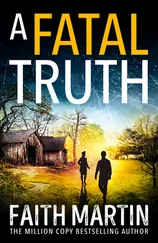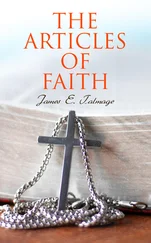Mary Breen stood staring up at the windows, understanding, slowly, that she was alone. The swing of her life had stopped short and sent her flying. She was eighteen on the longest day of the year; she had bet everything on Harry Breen, and had nothing left to lose. She, my mother, crossed the street to the El station, where a train would take her to Dudley Street, and the dancing.
Chapter 2
June 1, 2004
Most of you have heard, by now, what happened to my brother, or a version of it: the alarming events of that spring and summer, the single, vile accusation, still unproven, that made a ruin of his life. In Philadelphia, where I live, his story was buried deep in the Nation section, a terse paragraph picked off one of the wire services, giving little more than his name, Arthur Breen; his age, fifty-one; and the name of his parish, Sacred Heart. The Boston papers paid more attention, delving into his years at seminary, his time in Rome, the three suburban parishes where he served without incident. As is typical in these cases, his accuser was not named.
You may not remember the particulars. In that year, 2002, it would have been easy to conflate the story with others. The sad truth is that such tales are no longer rare. As a girl I once went along with my mother, who cleaned, for no pay, the parish rectory every Saturday morning. I watched her take wastebaskets from the bedrooms and bathrooms and empty the used dental floss and crumpled Kleenex into a metal trash can she then dragged to the back door. I was very small, five or six, and flabbergasted by the discovery that priests blew their noses. The very idea gave me a jolt.
That isn’t to say I considered priests superhuman. Despite his flash costumes and his one, peculiar superpower—the miracle of transubstantiation, performed seven days a week, twice on Sundays—old Father Cronin had little in common with the masked heroes in comic books. And yet I did see him as other than human, made of different stuff than the rest of us. It sounds fanciful now, but I truly believed it, and I suppose other children did, too.
I mention this because a child’s ideas about priests seem relevant to the story, though the world has changed in thirty years, and for all I know children have, too. Though I never saw a priest do anything truly outrageous, I probably wouldn’t have objected if I had. Honestly, I expected them to be strange. The rules allowed it, even required it: the lonely rectories, the long black dresses. At the same time, I understood that these men were not born priests. My brother had been a normal boy, a child like any other. It was at St. John’s Seminary that he became something else. That he himself was transubstantiated.
How exactly that happened is a question I still ponder. I was a teenager when Art was ordained. It is a memory that still haunts me: nine young men in white robes lying facedown on the cathedral floor, receiving the blessing of Cardinal Medeiros, who ran the Boston Archdiocese at the time. When he had finished with them, the candidates were seated on the altar. An army of priests filed past to offer blessings, a hundred times the laying on of hands. Truly, it was something to see. Yet I am a doubter, and I doubt that these rituals caused Art’s transformation. At most, they simply marked it. Transubstantiation had begun years earlier. Art was not yet a man when he started becoming a priest.
He was fourteen, and I was too young to notice, when he left us for St. John’s—its high school division, what was then called the minor seminary. It isn’t called anything now. The Archdiocese no longer corrals together herds of parentless boys in the throes of hormonal upheaval. I’d like to say that Lake Street finally came to its senses, but the truth is that there are no longer any boys willing to be herded. It’s hard to imagine now, but in the mid-sixties there was no shortage of volunteers. Every autumn, male teenagers from across the Archdiocese were packed off to Brighton, traveling home, as Art did, on holidays and occasional weekends. It sounds quaint, in an age when every teenager carries a cell phone, to say that he wrote weekly letters to my mother, but that is what he did. Ma read them aloud at family dinners, at church functions. Frankly, she bragged. To have a son at St. John’s was a prestigious thing for a family like ours. I was an erratic student, and my younger brother Mike downright hopeless; but Art excelled in all subjects, not just the priestly ones. He had an ear for languages and music; his voice, before it changed, was fine and pure as the top register of a clarinet. As a boy he sang or whistled constantly, a habit that irked my father.
Cut it out, will you? he’d complain when he caught Art humming under his breath.
Art, who feared him, hushed instantly, only to start up again a few minutes later. He was not a defiant child; in fact, the exact opposite. But his singing was unconscious and irrepressible—an expression of his native exuberance, the dreamy, buoyant soundtrack running through his head.
Whatever his other sins, my father, Ted McGann, is not a dour man. He has been known, late in the evening, to croon a few bars of “Mother Machree” in a manly tenor; in his young days he was considered to have quite a voice. It was Art’s repertoire that rankled him. My brother was a small, slight boy; puberty came late to him, and the Rondelles and the Supremes were still an easy reach. I imagine the family sitting down to supper, an unseasonably heavy meal of beef stew or shepherd’s pie. Imagine rather than remember, though technically I was there, in my high chair, eating mashed potatoes with a spoon. All five of us, in fact, were present, my mother eight months pregnant with a kicking, oversized male infant, Mike taking up as much space as possible even in the womb. The snug eat-in kitchen was stifling, filled with afternoon sun. Like most of our neighbors, we kept Raytheon hours. My mother put dinner on the table at five o’clock precisely. Dad’s shift ended at four.
At dinnertime the radio played softly in the background—my mother kept it on all day, at low volume, as she cleaned or cooked or laundered. Marooned with a cranky toddler, she was profoundly lonely, yet she chose its staticky drone over the gossip of the neighborhood women, whose company she both longed for and scorned. She was the first to notice when Art began humming, the first wisps of his sweet falsetto. Even now, in her older years, she hears like a bat. Her foot would seek his under the table, a nudge of warning. But Art could not be stopped.
She glanced nervously at my father. His anger was a mercurial thing, sometimes gathering slowly, sometimes bursting forth without warning, a fast-moving storm. He drank then, but not as much as he would later. He might have stopped off for a quick one after work, no more. Yet even sober he had a temper. I say this not to shame him, but because his anger was a factor in Art’s choices: my brother’s place in the family and the reasons he left us, the sad trajectory of his priesthood. A factor, even, in his recent actions, ending in the events I’ll get to soon.
GRANTHAM IS a seaside town, battered by weather. It occupies a narrow finger of land jutting into Boston Harbor, the outermost reaches of a cluster of suburbs known as the South Shore. At its thickest the finger is a half-mile wide, so that no house is more than a quarter mile from the ocean. To the west of the finger lies Boston Harbor. A commuter ferry crosses it four times a day, from Long Wharf in Boston to Grantham’s Berkeley Pier. On the east side of town, grand old houses occupy the Atlantic beachfront, built when the town was a vacation spot for the wealthy. (You may have seen the famous photo of a future president, a blue-eyed urchin of three or four building a lopsided Camelot in Grantham sand.) Today the old Victorians are still standing, dark in winter, in season rented by the week. Year-round residents like my parents live in low Capes and ranches, covered in vinyl siding to cut down on the painting, though the salt air still takes a heavy toll on porches and windows and doors. The backyards are squared off by chain-link fences. The houses are tidy or ramshackle, depending on the street, but even the most derelict neighborhoods have a certain charm, gulls squawking, a seasmell I never noticed until I moved away. In stormy weather add the low moan of Grantham Light, the second oldest on the East Coast.
Читать дальше












